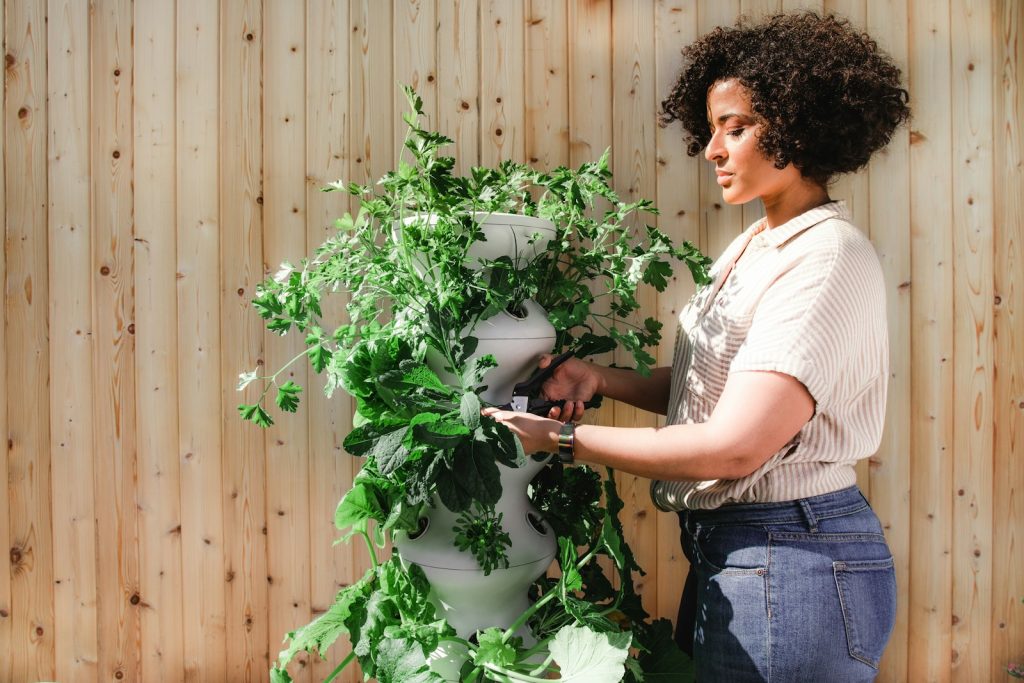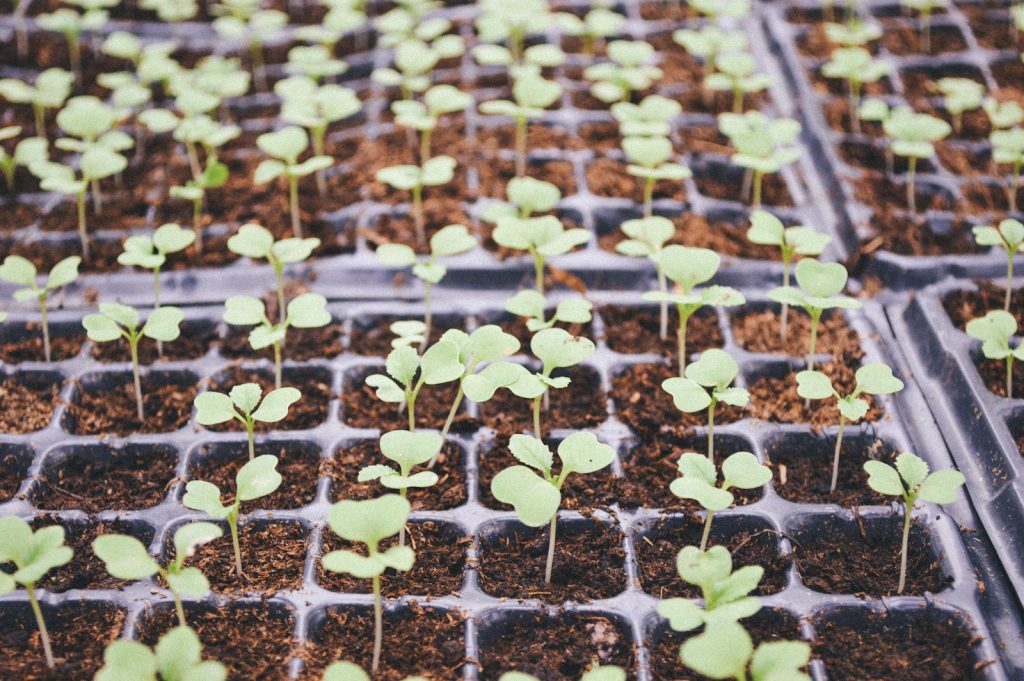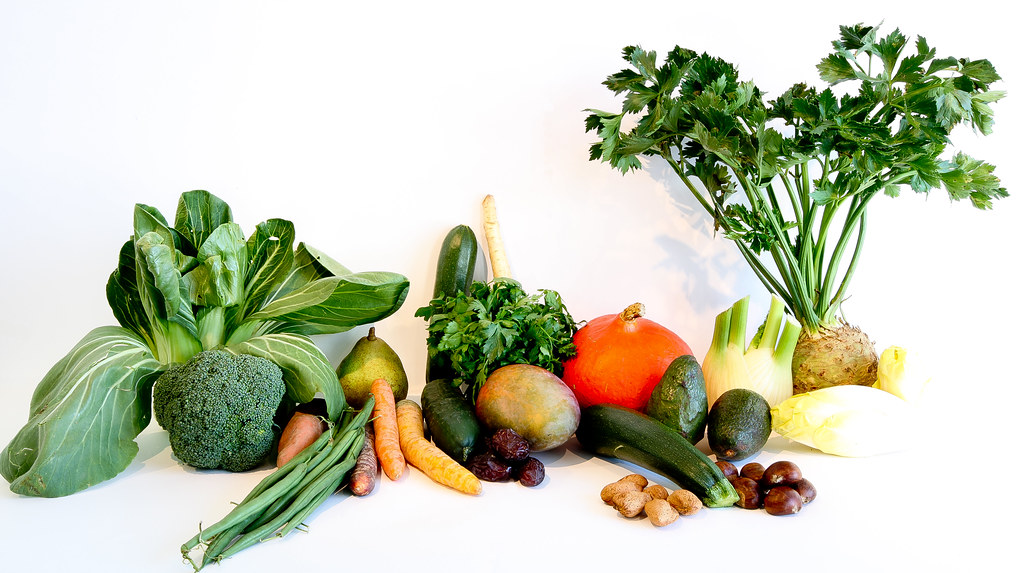Imagine biting into a juicy, ripe tomato straight from your own organic vegetable garden – the burst of flavor is truly unmatched. Organic gardening for vegetables is a rewarding hobby and a sustainable way to provide your family with fresh, nutrient-dense produce while minimizing your environmental impact. By embracing organic gardening practices, you’re cultivating a healthier ecosystem and contributing to a more sustainable future.
At its core, organic gardening involves growing plants without synthetic pesticides, herbicides, or fertilizers. Instead, it uses natural methods and materials to nurture the soil, control pests, and promote plant growth. This holistic approach not only results in delicious and nutritious vegetables but also supports biodiversity and preserves the natural balance of your garden ecosystem.
While some misconceptions persist, such as the belief that organic gardening for vegetables is more challenging or less productive, the truth is that anyone can successfully grow a thriving organic vegetable garden with the right knowledge and techniques. Following organic practices will reward you with flavorful, chemical-free produce and the satisfaction of knowing you’re contributing to a healthier planet.
Planning Your Organic Vegetable Garden

Before diving into the world of organic gardening, it’s crucial to plan your vegetable garden carefully. The first step is to choose the right location that receives ample full sun, typically at least six hours of direct sunlight daily. Ensure the area has good drainage to prevent waterlogging, as most vegetables thrive in well-drained soil.
Next, determine your growing season and frost dates for your region. This information will help you plan when to start seeds indoors, transplant seedlings, and schedule your harvests accordingly. You can find this data through your local extension office or by consulting online resources specific to your area.
Conducting a soil test is also essential to understand your soil’s nutrient levels and pH. This information will guide you in amending the soil with the appropriate organic matter and amendments to create an optimal growing environment for your vegetables.
Finally, select vegetables that are well-suited to your climate and growing conditions. Consider factors such as heat tolerance, disease resistance, and maturity dates. Don’t be afraid to experiment with a variety of vegetables, as diversity in your garden can help deter pests and promote a balanced ecosystem.
Preparing the Soil for Organic Gardening for Vegetables

Healthy soil is the foundation of a successful organic vegetable garden. Rich in organic matter and beneficial microorganisms, well-prepared soil provides essential nutrients for your plants and helps retain moisture, improving drought resistance.
Creating a compost pile is one of the best ways to enrich your soil. Composting breaks down organic materials, such as kitchen scraps, yard waste, and shredded paper, into a nutrient-rich soil amendment. Not only does composting reduce waste, but it also provides a valuable source of organic matter for your garden.
In addition to compost, you can incorporate aged manure, leaf mulch, or other organic amendments into your soil to improve its structure and fertility. These materials break down over time, releasing essential nutrients for your plants to thrive.
Raised beds are another popular option for organic vegetable gardening, especially in areas with poor soil quality or limited space. By constructing elevated beds and filling them with a nutrient-rich soil mix, you can create an ideal growing environment tailored to your plant’s needs.
Planting and Maintaining Your Organic Vegetable Garden
Once your soil is prepared, it’s time to start planting! Depending on your climate and the specific vegetables you’ve chosen, you may need to start seeds indoors several weeks before the last expected frost date. This head start allows seedlings to develop strong root systems before being transplanted into your outdoor garden.
When transplanting seedlings or direct sowing seeds, follow proper spacing guidelines to prevent overcrowding and promote healthy growth. Companion planting, the practice of growing certain plants that benefit one another, can also enhance your garden’s productivity and discourage pests.
Mulching is an essential organic gardening technique that helps retain moisture, suppress weeds, and regulate soil temperature. Organic materials like shredded leaves, straw, or grass clippings make excellent mulches. Row covers, lightweight fabrics placed over plants, can also protect your crops from pests and extend your growing season.
Organic Gardening for Vegetables: Pest Management Strategies
One of the most significant challenges in organic gardening for vegetables is managing pests and diseases without relying on synthetic chemicals. However, with the right strategies, you can effectively control pests while maintaining a healthy, sustainable garden ecosystem.
Encouraging beneficial insects, such as ladybugs, lacewings, and parasitic wasps, is a powerful organic pest control method. These natural predators help keep harmful insect populations in check by preying on them or laying eggs inside them. You can attract beneficial insects by planting various flowering plants and providing water sources in your garden.
Identifying common garden pests and diseases is crucial for implementing targeted organic control methods. Some common organic pest control techniques include:
- Neem oil: A botanical insecticide derived from the neem tree, effective against various insects.
- Insecticidal soap: A safe and effective way to control soft-bodied insects like aphids and whiteflies.
- Diatomaceous earth: A powdery substance made from crushed fossils that can dehydrate and kill soft-bodied pests.
- Companion planting: Growing certain plants together can help repel or confuse pests and attract beneficial insects.
Additionally, practicing good garden hygiene and sanitation, such as removing diseased plant material and rotating crop locations, can help prevent the spread of pests and diseases.
Organic Fertilization and Plant Care
Providing your plants with the right nutrients is essential for their growth and productivity. In organic gardening, you can create nutrient-rich fertilizers from readily available materials like compost, aged manure, and organic matter.
Homemade organic fertilizers, such as compost tea or fish emulsion, can be applied directly to the soil or as a foliar spray, boosting essential nutrients to your plants. Properly timed applications at key growth stages can significantly enhance plant vigor and yield.
Proper watering techniques are also crucial for maintaining a healthy organic vegetable garden. Aim to water deeply and consistently, avoiding frequent shallow waterings that can encourage shallow root systems. Mulching can help conserve moisture and reduce the frequency of watering needed.
Conclusion: Organic Gardening for Vegetables
Organic vegetable gardening is a rewarding hobby and a sustainable way to cultivate a healthier lifestyle and environment. By embracing natural methods and materials, you’ll be able to grow delicious, nutrient-dense produce while minimizing your environmental impact and supporting biodiversity.
While organic gardening may require patience and a willingness to learn, the rewards are well worth the effort. As you nurture your organic vegetable garden, you’ll develop a deeper appreciation for the natural cycles and processes that support plant growth, and you’ll take pride in the fresh, flavorful produce you’ve cultivated with your hands.
Remember, organic gardening is not just about the end result but the journey itself. Embrace the challenges, celebrate the successes, and enjoy working in harmony with nature to create a sustainable, thriving, edible oasis.
So, roll up your sleeves, get your hands dirty, and embark on the rewarding path of organic vegetable gardening. Your taste buds and the planet will thank you.
Frequently Asked Questions
Q: Is organic gardening for vegetables more expensive than conventional gardening?
A: While organic gardening may require an initial investment in materials like compost and natural pest control products, the long-term costs can be lower than conventional gardening. You’ll save money by not purchasing synthetic pesticides and fertilizers, and you can create many organic amendments from household waste or natural materials.
Q: How can I transition my existing garden to organic practices?
A: Transitioning to organic gardening for vegetables is a gradual process that may take a few years. Start by eliminating synthetic chemicals and focus on building healthy soil with compost and organic matter. Introduce beneficial insects and practice crop rotation to manage pests and diseases naturally.
Q: Do organic vegetables yield less than conventionally grown ones?
A: This is a common misconception. With proper organic gardening techniques and soil management, organic vegetables can yield as much as conventionally grown ones, if not more. The focus is on quality over quantity, producing nutrient-dense and flavorful produce.
Q: How can I control weeds organically?
A: Organic weed control methods include mulching, manual removal, and using organic herbicides like vinegar or corn gluten meal. Maintaining a healthy, nutrient-rich soil can also help prevent weed growth, as vigorous vegetable plants can outcompete weeds for resources.
Q: Do I need a large space for an organic vegetable garden?
A: Not at all! Organic gardening for vegetables can be done in various spaces, from raised beds and containers to small urban plots. Proper planning and techniques allow you to grow a bountiful organic garden even in limited areas.
Q: How can I attract beneficial insects to my organic garden?
A: Planting various flowering plants, providing water sources, and avoiding pesticides can all help attract beneficial insects like ladybugs, lacewings, and parasitic wasps. These natural predators will help control harmful insect populations in your garden.
Q: What should I do if I notice pests or diseases in my organic garden?
A: Identify the specific pest or disease and implement targeted organic control methods, such as using neem oil, insecticidal soap, or introducing beneficial insects. Maintaining good garden hygiene by removing affected plant material and practicing crop rotation can also help prevent the spread of pests and diseases.

Leave a Reply